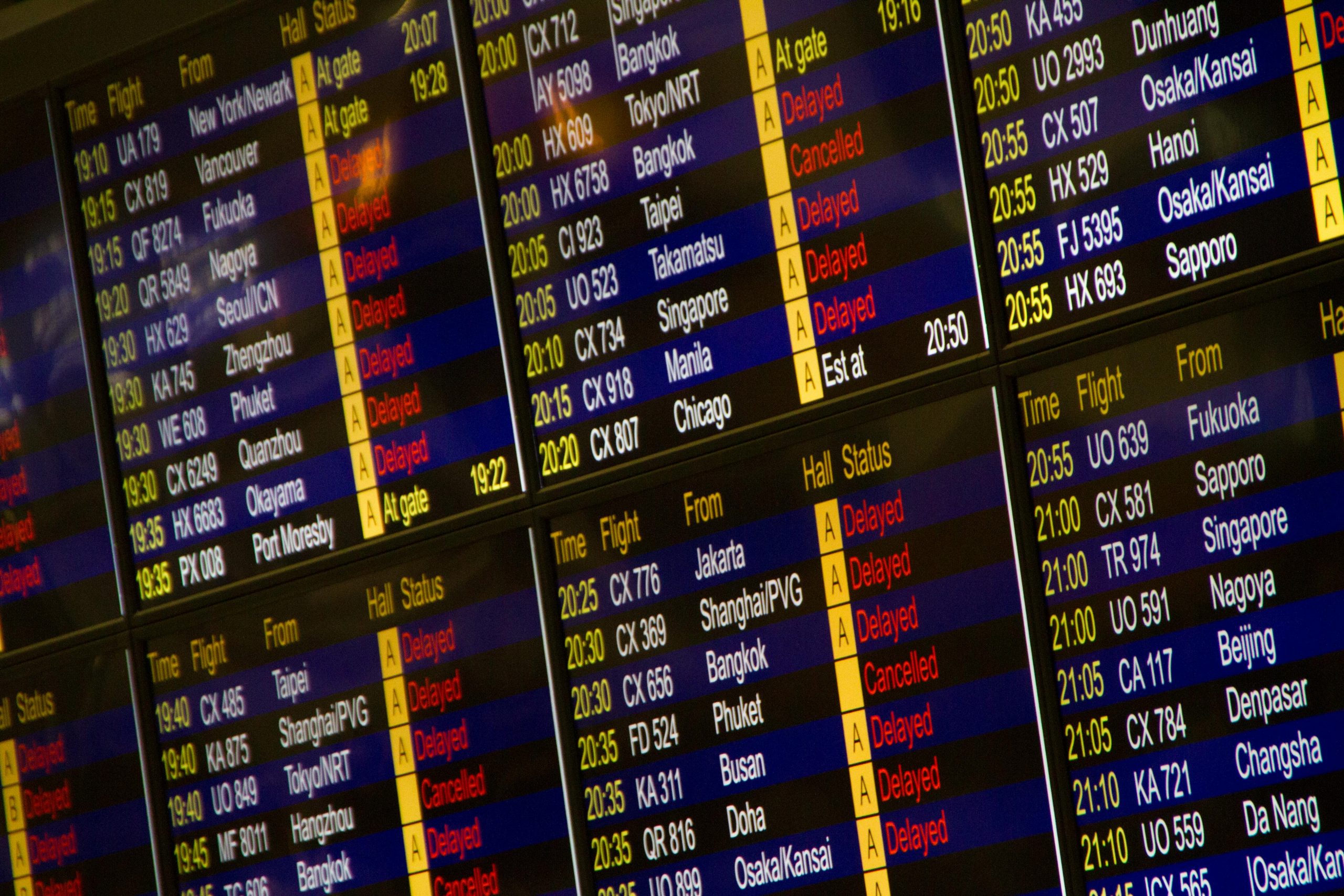Flight cancellations and delays are an unfortunate reality of air travel. Whether due to weather, mechanical issues, or staffing shortages, disruptions can throw a wrench into your plans. Knowing what to do when your flight is cancelled or delayed can save you time, money, and stress. This guide outlines the essential steps to take to minimize inconvenience and ensure you get the best possible outcome.
Stay Calm and Gather Information
The first thing to do when your flight is cancelled or delayed is to stay calm. Panicking won’t help, but taking swift action will. Start by checking the status of your flight on the airline’s app or website. Sometimes, notifications are delayed, so verifying the details yourself is crucial.
Key Details to Confirm
- Reason for the delay or cancellation – Weather, mechanical issues, or crew shortages can affect your options.
- Expected new departure time – If it’s a short delay, you may not need to take further action.
- Alternative flights – Check if the airline has already rebooked you or if you need to do it yourself.
If you’re at the airport, head to the airline’s customer service desk or gate agent for real-time updates. Lines can get long quickly, so consider calling the airline’s customer service while waiting in line to explore your options faster.
Know Your Rights and Airline Policies
Different airlines have different policies for cancellations and delays, and your rights may vary depending on the region. In the U.S., for example, airlines aren’t legally required to compensate passengers for delays unless they’re due to the airline’s fault (like overbooking). However, in the EU, passengers are entitled to compensation under EC 261 for significant delays or cancellations.
What You Might Be Entitled To
- Rebooking on the next available flight – Often at no extra cost.
- Meal vouchers or hotel accommodations – For extended delays or overnight cancellations.
- Refunds or travel credits – If you choose not to travel.
Always review the airline’s contract of carriage (available on their website) to understand what they owe you. If you’re unsure, politely ask the airline staff about available compensation or accommodations.
Explore Rebooking and Alternative Options
If your flight is cancelled, don’t wait for the airline to rebook you—take initiative. The sooner you act, the better your chances of securing a seat on the next available flight.
Steps to Rebook Efficiently
- Check other flights with the same airline – Use the app or website to see options.
- Ask about partner airlines – Some airlines can rebook you on competitors’ flights.
- Consider nearby airports – Flying out of a different city might get you home faster.
If you’re stuck in a long line at the airport, call the airline’s customer service while waiting. Sometimes, phone agents can assist faster than in-person staff. Additionally, if you booked through a travel agency or credit card rewards program, contact them—they may have more leverage to secure a better rebooking option.
Maximize Compensation and Minimize Costs
Flight disruptions can lead to unexpected expenses, but there are ways to mitigate costs. Keep all receipts for meals, hotels, and transportation—you may be able to claim reimbursement from the airline or travel insurance.
Ways to Reduce Financial Impact
- Use travel insurance – If you have a policy, check coverage for trip delays or cancellations.
- Leverage credit card benefits – Many premium cards offer trip delay protection or concierge services.
- Request compensation where applicable – In regions like the EU, submit a claim for legally mandated reimbursement.
If the airline offers a voucher instead of a refund, evaluate whether it’s a good deal. Sometimes, insisting on a cash refund is better, especially if you don’t plan to fly with that airline again soon.
Prepare for Future Travel Disruptions
While you can’t prevent flight cancellations or delays, you can be better prepared for next time. Simple strategies can make future disruptions less stressful.
Proactive Tips for Smoother Travel
- Book early-morning flights – They’re less likely to be delayed.
- Allow longer layovers – Reduces the risk of missing connections.
- Pack essentials in your carry-on – Medications, chargers, and a change of clothes can be lifesavers.
Consider signing up for flight alerts and downloading apps like FlightAware to track your flight’s status in real time. The more informed you are, the quicker you can react to changes.
Flight cancellations and delays are frustrating, but knowing how to respond can make all the difference. By staying calm, understanding your rights, and acting quickly, you can turn a travel nightmare into a manageable inconvenience. Safe travels!
